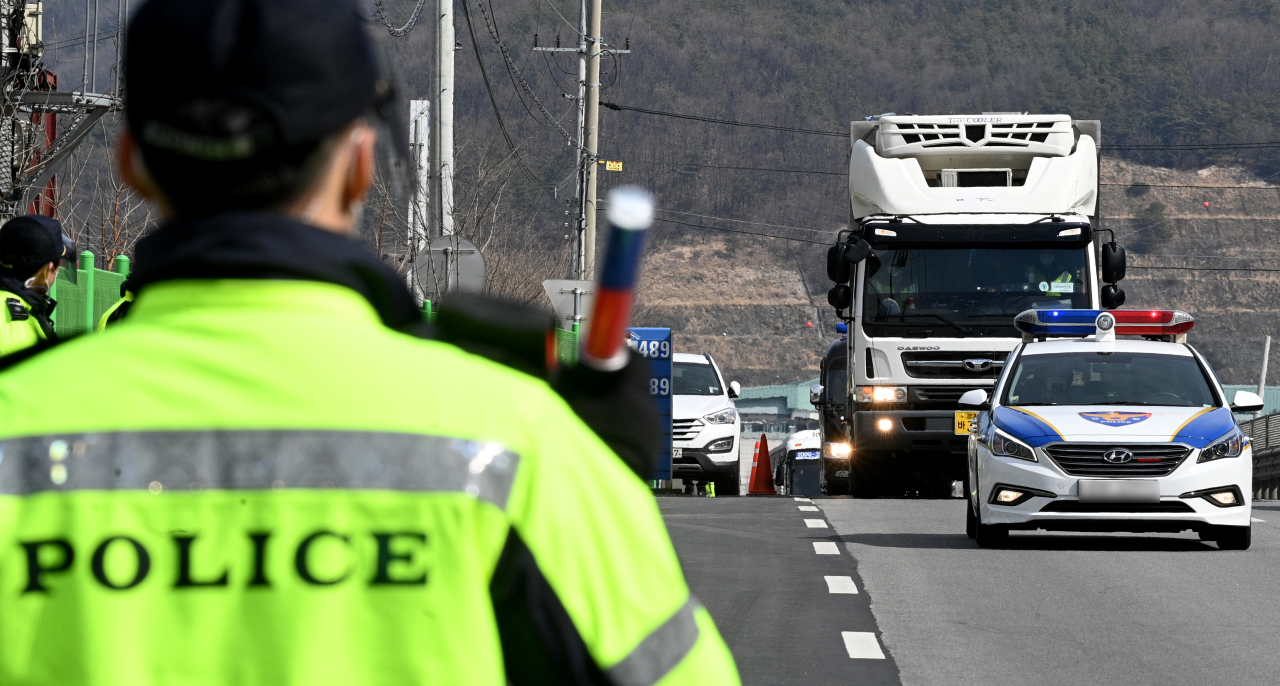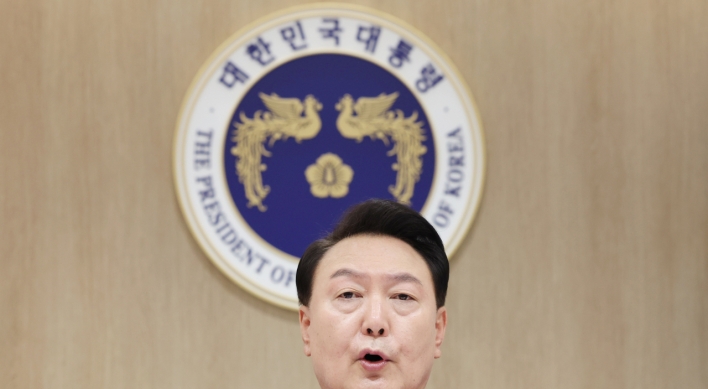High hopes, stark reminders as Korea finally gets vaccines
Face masks, social distancing still required post-vaccination
By Kim ArinPublished : Feb. 24, 2021 - 18:25

Come Friday, South Korea will be joining about 98 countries and territories that have started vaccinating against COVID-19. To date more than 212 million doses of COVID-19 vaccines have been administered worldwide, according to University of Oxford-run Our World in Data.
Like most other countries, Korea’s early vaccination efforts are focused on priority groups of people in their 60s or older and front-line health care workers.
The initial batches consist of 1.5 million doses of AstraZeneca’s vaccine and 117,000 of Pfizer’s, which are together enough to cover 808,500 people as both require a two-dose regimen for maximum effectiveness.
The plan is to give the first of two doses of the AstraZeneca vaccine to 272,000 nursing home residents and workers younger than 65 by the end of March, and the first doses of the Pfizer vaccine to 58,000 health care professionals working with patients with COVID-19 before May.
Ahead of the inoculations, fleets of trucks tasked with delivering the first AstraZeneca jabs to some 1,900 long-term care facilities and public health centers across the country hit the road Wednesday morning, guarded until their destinations by police and military.
Data from countries where mass inoculation campaigns are underway offer cause for optimism, according to Dr. Jerome H. Kim, director general of the International Vaccine Institute.
“Increasingly there is evidence from Israel and now the UK that high levels of vaccination are really significantly decreasing hospitalizations,” he said, citing new UK studies.
The studies showed that first doses of both AstraZeneca and Pfizer vaccines are capable of reducing hospitalizations by up to 94 percent and 85 percent, respectively.
Kim said, “The vaccines, although they might not prevent infection, could turn a tiger into a pussycat -- meaning that instead of 14 percent of infected persons being hospitalized, 4 percent put on ventilators, and 1.8 percent dying, a vaccinated person who becomes infected has mild symptoms but does not have to go to the hospital, does not need a ventilator, and does not die.”
In other words, the vaccines achieve “a key goal of protecting people from severe disease and death,” he said.
“The new studies indicate the vaccines do work against variants, in particular in the reduction of severe disease caused by variants,” he said. “Finally as we get better control over the outbreaks -- not only in Korea but around the world -- we will decrease the generation of mutant viruses.”
But as the vaccine drive is about to take off some stark reminders were issued as well.
Korea University’s infectious disease specialist Dr. Choi Won-suk, one of the experts invited to speak at the government briefing Wednesday afternoon, said although the vaccines were powerful shields, life was probably not returning to normal anytime soon -- at least not this year.
“Even if we complete vaccinations of 70 percent of the population until fall, as planned, it is not likely that we would be able to return to the way things were before COVID-19 came around,” he said.
To people who are up on the priority list, Choi said it was “critical” that they continue to socially distance, wear face masks and follow other precautions.
“I think some people are under the impression that they won’t have to wear face masks anymore once they’re vaccinated. But they’re going to have to keep wearing them,” he said.
“The vaccines can help protect you from falling seriously sick with COVID-19, yes. But it’s still unknown if they can prevent you from spreading it to others,” he said. “Also, not all those vaccinated will develop enough immunity to keep them safe from the virus -- a few may not.”
Korea Disease Control and Prevention Agency chief Jung Eun-kyeong, who is overseeing the immunization efforts, said in the same briefing that social distancing was “more important now than ever.”
“Our health care systems are faced with a double burden of carrying out vaccinations whilst fighting COVID-19. It will be harder to deal with any major surge in COVID-19 cases. So mask up, stay distanced and get tested if you feel unwell.”
By Kim Arin (arin@heraldcorp.com)




















